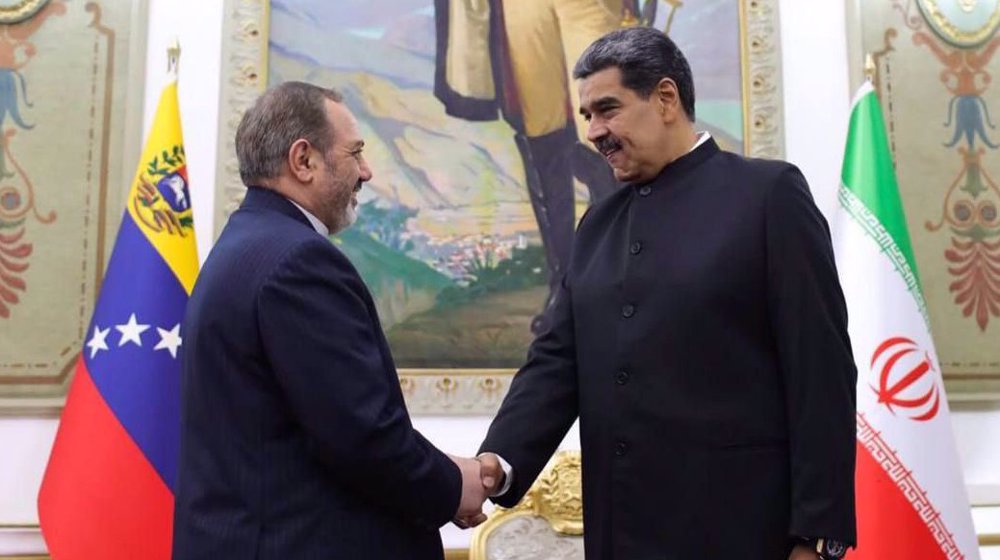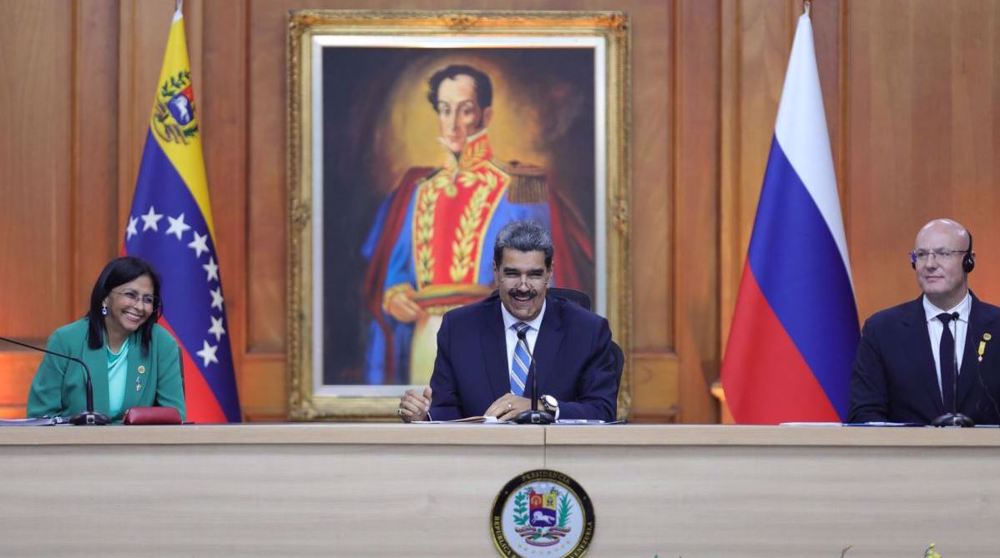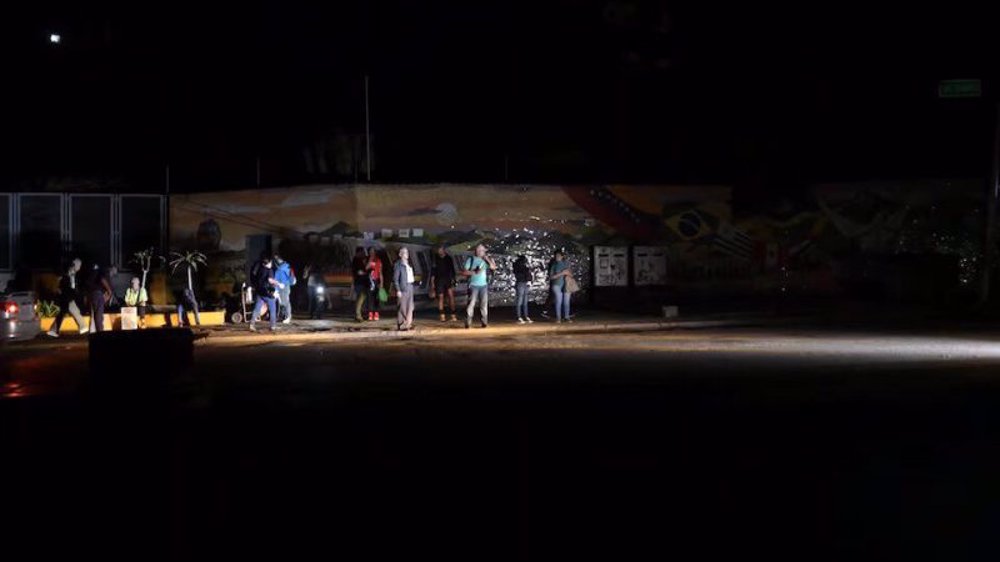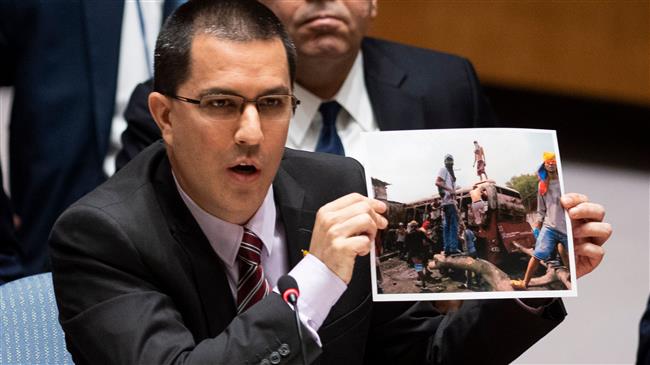Venezuelan government prepared for repelling any potential US attack: FM
Venezuelan Foreign Minister Jorge Arreaza says the government of President Nicolas Maduro is prepared to repulse any potential attack mounted by the United States against the South American country, less than a week after an anti-Maduro coup led by US-backed opposition leader Juan Guaido failed.
“We are ready for all scenarios. The first is diplomacy, dialogue, peace,” said Arreaza during a press conference in Moscow on Monday, after meeting with his Russian counterpart Sergei Lavrov.
The Venezuelan top diplomat also stressed that if the White House “opts for the military path, we have an armed force, a people, a national guard that will be able not just to resist and fight, but also to win.”
Arreaza’s remarks came two days after Maduro called on the country’s armed forces to be on standby for any potential US military action against Venezuela.
“Be ready to defend the homeland with weapons in your hands if one day the US empire dares to touch this territory, this sacred earth," Maduro said during a televised speech from a base in the northwestern Cojedes state.
The South American nation plunged into an unprecedented political turmoil in January when 35-year-old Guaido declared himself as the “interim president” of Venezuela, a bizarre move that received immediate recognition from Washington, which called on its allies to follow suit.
The administration of US President Donald Trump has since been mounting economic pressure on Caracas and repeatedly threatened to use military force to topple Maduro’s government, as it has confiscated Venezuela’s US-based oil assets in an attempt to channel revenue from them to Guaido.
On Tuesday morning, Guaido, standing near the La Carlota air force base in capital Caracas and surrounded by a group of some 70 members of the armed forces, called for military units to support him in the “final phase” of a plan to end Maduro's “usurpation” of power.
The revolt, which received direct support from US National Security Adviser John Bolton and US Secretary of State Michael Pompeo, sparked two days of clashes between dozens of Guido’s supporters and security forces.
Gunfire was heard during the clashes and more than 100 people were reported wounded in what was later revealed to be a US-backed coup against Maduro. The putsch, however, failed as army’s top commanders reiterated their firm support for the incumbent president and put down the coup attempt, which also claimed the lives of several people.
At least 25 rebel troopers sought asylum at the Brazilian embassy in capital Caracas in the aftermath of the botched putsch.

At the joint presser on Monday, Lavrov, for his part, called on Washington to “abandon its irresponsible plans” in crisis-hit Venezuela, which is currently under harsh US sanctions.
Elsewhere in his remarks, Arreaza said Caracas was developing “alternatives to financial trading systems” with its Russian and Chinese allies to “get around the American blockade.”
He also confirmed a delegation from Venezuela would participate in an economic forum due to be held in Saint Petersburg next month, adding that President Maduro might lead the delegation.
Many Western countries have recognized Guaido as Venezuela's leader but Maduro enjoys the backing of many non-aligned nations such as Russia, China, Turkey and Iran while key state institutions, including the military, still support him.
Maduro has repeatedly accused Washington of masterminding a “coup” against his government, blaming the US for the economic crisis in Venezuela.
Washington has a long record of sponsoring “regime change” campaigns in Venezuela and other countries. In 2002, former president Hugo Chavez was ousted for two days in a US-backed coup that was ultimately defeated.
Lavrov: US military intervention in Venezuela “catastrophic and unjustified”
Meanwhile, Russian Foreign Minister Sergey Lavrov warned on Monday that any US military intervention in Venezuela would be “catastrophic and unjustified.”
Lavrov made the remarks after a meeting with his US counterpart, Mike Pompeo, in Finland.
The two top diplomats met on the sidelines of a meeting of the Arctic Council, where Lavrov told reporters that his meeting had been constructive and that the two top diplomats had made decent progress when it came to discussing strategic nuclear stability.
VIDEO | Yemen’s armed forces target Israeli airbase amid nationwide pro-Palestinian rallies
Putin vows more test of new hypersonic missile
VIDEO | Jordanians continue rallies to denounce Israeli genocide in Gaza, Lebanon
6 Israeli soldiers commit suicide: Reports
Diplomat discourages recourse to pressure, intimidation, confrontation against Iran
UN: 2024 deadliest year for aid workers amid genocide in Gaza
Gaza health official warns of hospital shutdowns within 48 hours
Israel kills 5 more paramedics in southern Lebanon: Health ministry















 This makes it easy to access the Press TV website
This makes it easy to access the Press TV website